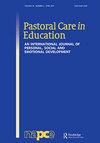Community celebrations in challenging times
IF 0.9
Q3 EDUCATION & EDUCATIONAL RESEARCH
引用次数: 0
Abstract
Welcome to Issue 2 of Volume 41 of Pastoral Care in Education. At the time of writing, it is just a few days after the Coronation of King Charles III in London. Many people were lining the streets to enjoy the occasion or participating in street parties across the UK and further afield, connecting again with their community after Covid-19. Others felt less inclined to celebrate during a period of post-Covid recovery, a cost-of-living crisis, mass strike action and climate change concerns. The current context did raise the question: What do young people want on Coronation Day? McDowell (2023) found that suggestions included wanting teachers to be paid fairly, schools to be adequately funded and the climate crisis to be taken seriously. Supporting the pastoral care of children and young people needs both the opportunity for developing a sense of belonging within their community and addressing their contemporary concerns. The articles in this edition certainly cover community and contemporary issues, including developing ‘societal resilience’ during COVID-19 recovery, refugee experiences, behaviour and the impact on achievement, friendship, test anxiety and mental health awareness. In the opening article of this issue, Penny Fogg explores the lessons that can be learnt from experiencing a national emergency like the pandemic. Her article draws upon a problem-analysis model, ‘Interactive Factors Framework’, applied to the experience of six primary school headteachers across systemic levels. The article outlines the care and education of children and young people at a local level during this period and identifies new knowledge for consideration with future pandemics or disasters. Concluding recommendations include suggestions for short and long-term recovery plans for societal resilience. This is followed by Lisa H. Papatraianou and Al Strangeways’ article that addresses an important and under-researched theme: understanding diverse refugee girls’ resilience when transitioning between home and school cultures. The study draws upon a ‘human resilience’ framework aiming to listen to the voices of refugee students. Arts based methods were used to encourage participation, agency and to hear the diversity of student experience. The findings challenge normative/Western constructs of resilience, examine the impact of resilience on a positive transition experience and address the challenges of moving across home and school cultures. The study recommends the importance of professional learning for teachers and whole school approaches for the future. PASTORAL CARE IN EDUCATION 2023, VOL. 41, NO. 2, 125–127 https://doi.org/10.1080/02643944.2023.2216433挑战时期的社区庆祝活动
欢迎阅读《教牧关怀教育》第41卷第2期。在写这篇文章的时候,就在国王查理三世在伦敦举行加冕典礼的几天之后。许多人站在街道两旁,享受这一时刻,或参加英国各地和更远地区的街头派对,在新冠肺炎疫情后再次与社区联系。其他人则在疫情后的复苏、生活成本危机、大规模罢工行动和气候变化担忧期间不太愿意庆祝。当前的背景确实提出了一个问题:年轻人在加冕日想要什么?麦克道尔(2023)发现,建议包括希望教师获得公平的报酬,学校获得充足的资金,以及认真对待气候危机。支持对儿童和青少年的教牧关怀,既需要在他们的社区中发展归属感的机会,也需要解决他们的当代问题。本期的文章当然涵盖了社区和当代问题,包括在COVID-19恢复期间发展“社会复原力”、难民经历、行为以及对成就、友谊、考试焦虑和心理健康意识的影响。在本期的开篇文章中,彭妮·福格探讨了从经历像大流行这样的国家紧急情况中可以吸取的教训。她的文章借鉴了一个问题分析模型,“互动因素框架”,应用于六所小学校长在系统层面的经验。这篇文章概述了这一时期在地方一级对儿童和青年的照顾和教育,并确定了未来流行病或灾害时要考虑的新知识。结论性建议包括对社会复原力的短期和长期恢复计划的建议。随后,Lisa H. Papatraianou和Al Strangeways发表了一篇文章,阐述了一个重要但尚未得到充分研究的主题:了解不同难民女孩在家庭和学校文化之间过渡时的适应能力。这项研究利用了一个“人类复原力”框架,旨在倾听难民学生的声音。以艺术为基础的方法被用来鼓励参与、代理和倾听学生体验的多样性。研究结果挑战了弹性的规范/西方结构,研究了弹性对积极过渡体验的影响,并解决了跨家庭和学校文化迁移的挑战。该研究建议了专业学习对教师的重要性,以及未来的全校教学方法。教牧关怀教育2023卷41号2,125 - 127 https://doi.org/10.1080/02643944.2023.2216433
本文章由计算机程序翻译,如有差异,请以英文原文为准。
求助全文
约1分钟内获得全文
求助全文

 求助内容:
求助内容: 应助结果提醒方式:
应助结果提醒方式:


